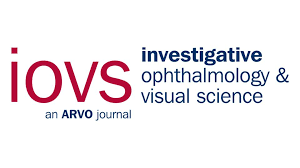Purpose:
The King-Devick Test (KDT) has been used to assess neurocognitive consequences of call duty in residents and found less improvement in performance following call and in those reporting more sleepiness. It tests speed and accuracy of number-reading and requires integrity of visual processing, saccades and cognition. The purpose of this study is to evaluate neurocognitive effects call duty in residents in a Level 1 Trauma Center.
Methods:
A prospective cohort study was conducted on residents. The experimental group completed the KDT on pre-call day 1 and post-call, days 2 and 3. Controls were tested on 3 consecutive days without call. The primary outcome was time to complete the KDT and number of errors. Estimated hours of sleep and Karolinksa Sleepiness Scale (KSS) prior to each test were recorded. These results, demographic details and PGY level were documented for each resident. Statistical analysis used student’s t, Wilcoxon ranked sum and chi-squared/ Fisher’s exact tests, Pearson’s correlation and mixed regression models adjusted by Tukey post-hoc test on SAS software. Significance was set at p<0.05.
Results:
132 residents (53 experimental and 79 controls) completed the KDT tests. Mean (SD) age was similar: experimental 28.45±2.49yrs vs controls 29.01±3.23yrs; p=0.289. PGY level also was similar: 2.04±1.13 vs 1.81±1.00 respectively; p=0.238. Females outnumbered males in the controls (p=0.008) and Medicine outnumbered Surgical residents (p=0.002). Mean (SD) hours of sleep between Day 1 and 2 differed (experimental 6.02±2.75hrs vs controls 7.01±2.09hrs; p=0.028). Day 2 to Day 3 saw a reversal (experimental 7.82±2.65hs vs controls 6.76±2.16hrs; p=0.013). KSS was greater after call in the experimental (4.70±1.84) than control group (3.76±1.81); p=0.004. However, there was no difference in KDT performance. Difference in KDT time occurred between Day 2 and Day 3 with better performance in the call group who had more sleep (Medicine -2.21 secs; p=0.023 and Surgery -3.41secs; p=0.009). Significance was reduced after adjusting for confounding variables. There was an inverse relation between hours of sleep and both KSS score (r=-0.28; p=0.001) and change in KDT time from Day 2 to Day 3 (r=-0.19; p=0.029).
Conclusions:
KSS and KDT improved with more hours of sleep the night before testing, suggesting greater importance in amount of sleep than call duty or service of call.
This is a 2020 ARVO Annual Meeting abstract.

